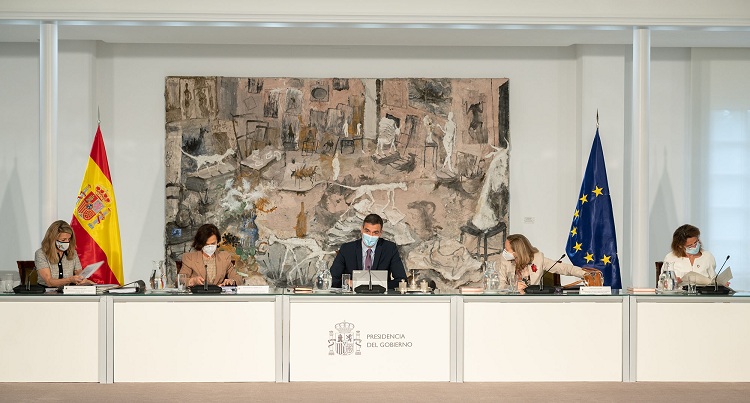Ángel Collado
The setback in the elections in Madrid, the upcoming pardon for the pro-independence leaders sentenced for the separatist attempt in Catalonia and the deadlock in the legislature have sparked speculation in the government and the PSOE about the advisability of undertaking a crisis in order to regain the initiative. As in any cabinet, when the end of the school year approaches and the end of the term is approaching, it is time to prepare the changes for September.
Since February, Pedro Sánchez’s government has been making a string of missteps and blunders, from the censure motions against the PP to the crisis with Morocco, which have now led to a rush to please his Catalan secessionist allies. Without their votes there will be no next term. All these failures have brought to light episodes of lack of coordination or internal differences within the coalition government of socialists and podemites, among the PSOE ministers themselves and between them and the Moncloa apparatus headed by the all-powerful (by Sánchez’s personal decision) Iván Redondo.
News of the crisis is a further illustration of these internal divisions. One of Sánchez’s four vice-presidents, Teresa Ribera, says in public that the chief executive is “working” on the new stage of recovery and is assessing “with which team” he wants to manage it. Then, at the behest of another vice-president, Carmen Calvo, La Moncloa officially denied it. In addition to the clash of the PSOE sector of the cabinet, there is the fearful silence of the Podemos sector, which does not even want to hear about reshuffles because its share of power is in question.
At the beginning of the legislature, Sánchez set up a government with the largest structure in Spain’s recent history, 22 portfolios, and the only one in the EU with communist ministers. The organisational chart was conditional on the distribution of posts with those of Pablo Iglesias, aimed at cultivating public spending and contained high doses of propaganda even in the new and overloaded titles of the departments.
The government is now awaiting approval from Brussels for its recovery plan, on which EU aid depends, and is bogged down in major pending reforms such as those of the pension system and labour legislation.
In any case, these will be cuts on the present or the coalition’s government pact that clash with the spending on ministries, some of which, like the current ministries of Consumer Affairs, Universities, Science and Equality, have never gone beyond the rank of secretaries of state or directorates general in the classic structure of the Spanish government or the rest of Europe.
The first payment of Sánchez’s outstanding bill with Oriol Junqueras and Carles Puigdemont in order to remain in power (the pardons) has brought criticism from the PSOE’s regional leaders, who fear that they will personally suffer the wear and tear of the concessions.
But they have also divided the socialist members of the Executive who are willing to enthusiastically defend their leader’s decision, according to Iván Redondo’s argument, and others who have expressly shunned it, such as the head of Defence, Margarita Robles. And to top it all off, there are the Podemos ministers, delighted that the cabinet is taking on board nationalist postulates.
In socialist circles it is taken for granted that once the pardons are over and relations with the Generalitat are on track, the support of the ERC in Congress will be guaranteed in order to unblock the legislature. Hence, they point to the advisability of undertaking a government crisis to alleviate the wear and tear on public opinion that the pardon for the coup perpetrators will entail.
In addition, there is the image campaign that Sánchez is preparing for when he can “sell” the milestone of 70 percent of the population vaccinated against Covid as a personal success this summer. He will do so, even though the EU has taken care of providing the vaccines and the regional governments’ health systems are responsible for administering them, in order to present a period of economic recovery. It is the same stage that vice-president Ribera referred to when she confessed that Sánchez was meditating “with which team” he should undertake it.







